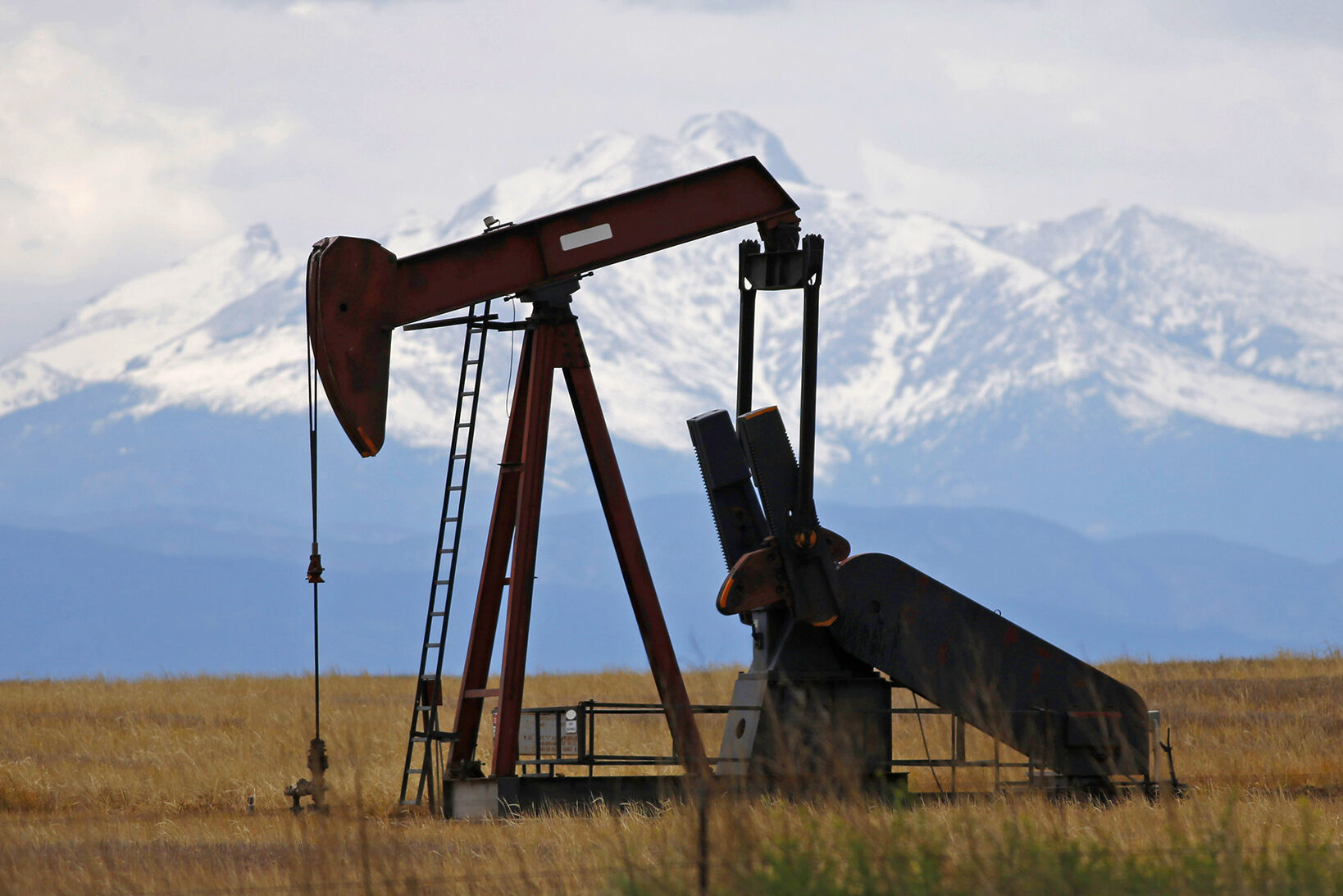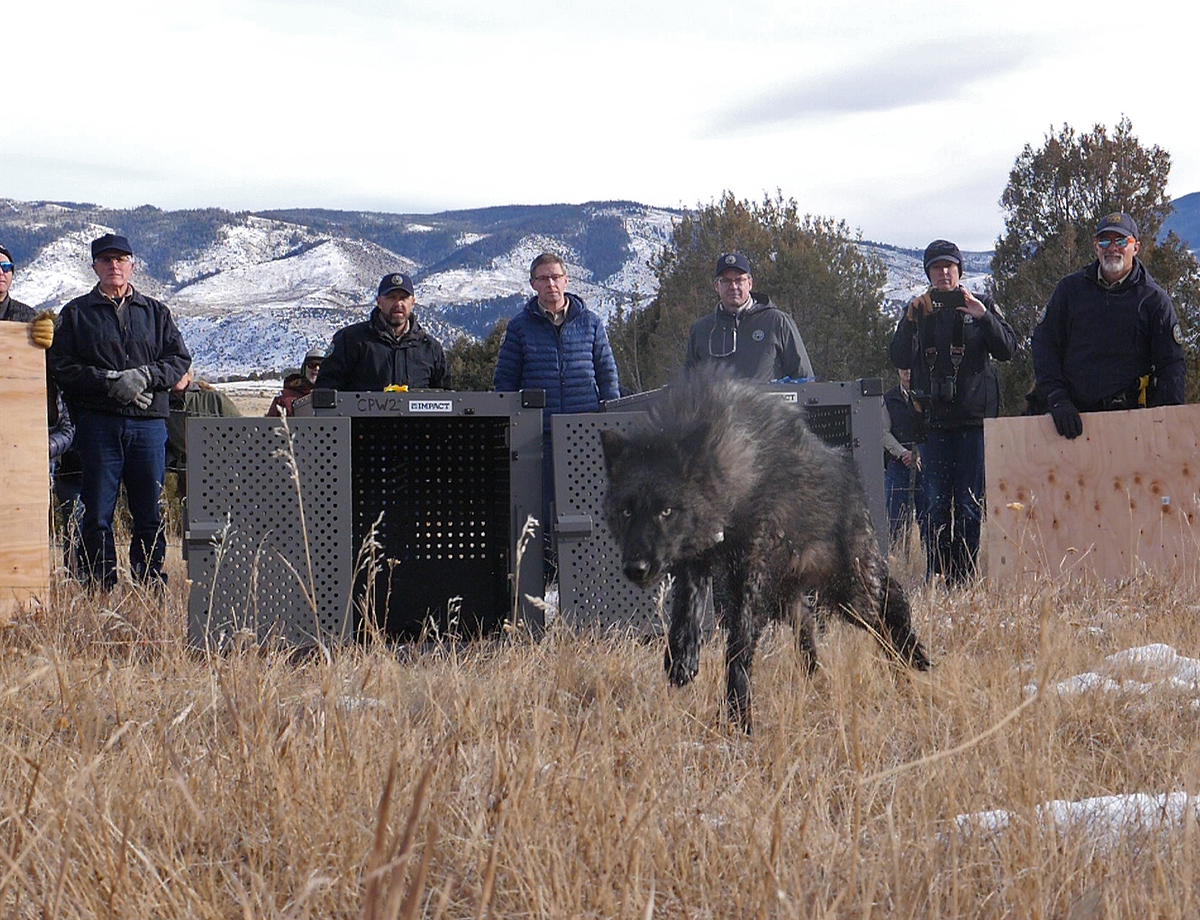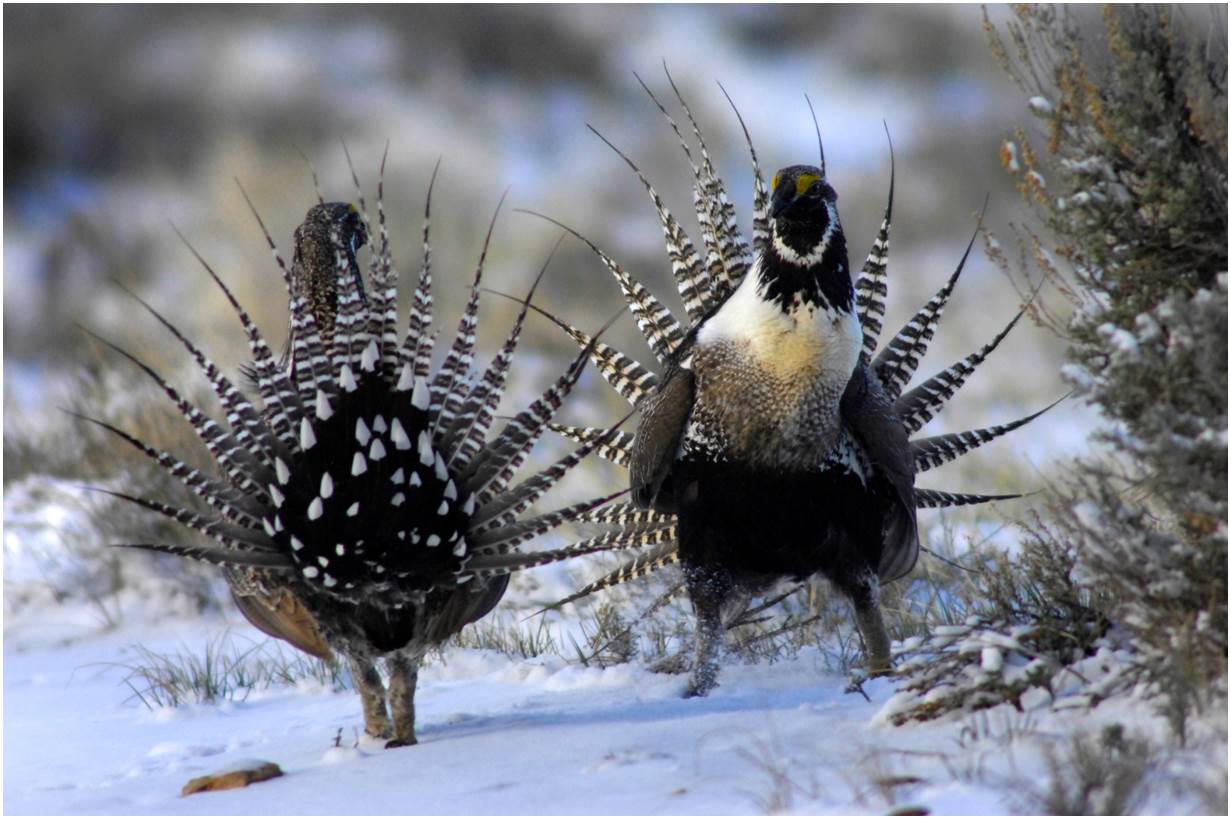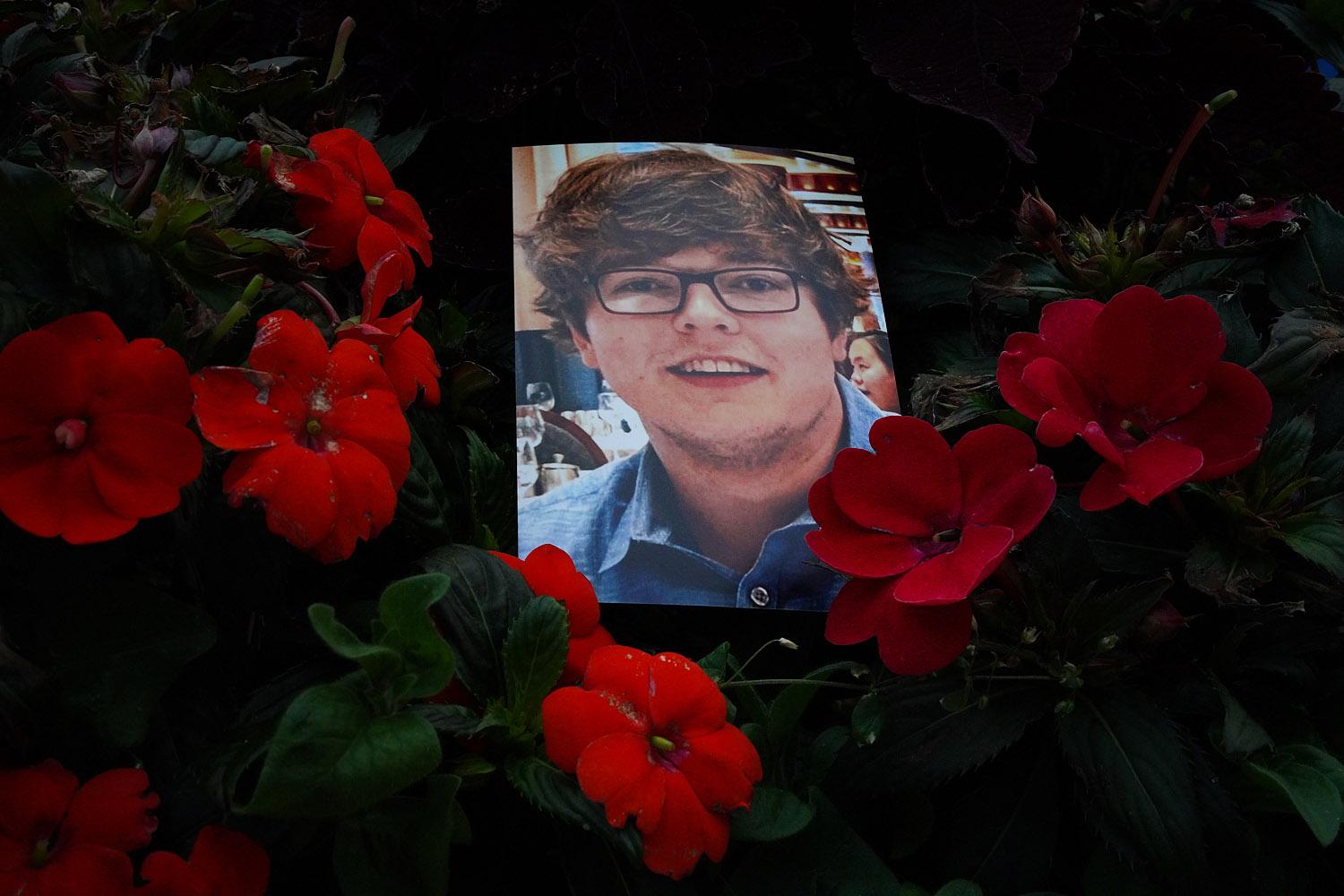Produced by Megan Verlee & Pat Mack
To be governor of Colorado right now is to think a lot about wildfire. For Governor John Hickenlooper, it’s meant traveling to the scene of these disasters and reviewing fire policy. He joins Ryan Warner for CPR's regular conversation.
[Photo: CPR News/M. Verlee]
Begin Transcript:
RW: Governor, thanks for being with us again.
JH: Glad to be back.
RW: Can you tell us about perhaps a memorable interaction you’ve had visiting the scenes of these wildfires?
JH: Oh my gosh. Where to start? The first time we drove, this was on about day eight I think, up into the heart of the High Park Fire west of Fort Collins and I actually was standing there with the volunteers from the Rist Canyon firefighters.
RW: In other words, the local team.
JH: The local team that were, that had all the early firefighting responsibility. And we were at the Stove Prairie School and they were describing how they were going to save that hundred-year-old one-room schoolhouse which they thought was the heart and soul of their community, even as they watched the fires go up the gulches and burn their own homes.
RW: Burn the firefighter’s own homes.
JH: Yes. So the firefighters are sitting there defending the one-room schoolhouse in their community, knowing, watching the smoke coming up the gulches of their houses burning.
RW: The one-room schoolhouse was spared?
JH: Yeah. They saved it all the way through the fire. Some of the visual images. The first, when the Waldo fire really exploded, and we flew down in a helicopter, we just wanted to be there, and from a distance we could see the, I mean it just looked like a forest fire with a bunch of different fronts, fifty, sixty-foot high flames and as we got closer we saw these weren’t trees, these were homes and it had come into the subdivision and the whole, that wasn’t a forest, it was a neighborhood that was on fire that from a distance looked like a forest fire. That still, that visual image is seared onto my, onto my consciousness.
RW: Let’s talk some fire policy. I understand that you’re looking back at some past legislation. Both that was successful and legislation that failed to see if there are policies you think the state needs that are already in place. What can you share with us from that review?
JH: Well anytime you encounter this kind of disaster, you’ve got to go back and say alright what could we have done differently, what are the policies in place now that should be changed. What are new policies that maybe are being done somewhere else. For me, one thing I’ve seen again and again is you’ve got to get to these fires as soon as humanly possible. Because once they blow up to a certain size, if there’s wind, you could have ten thousand firefighters on the ground and you can’t stop these fires. When the wind is going, they wash over everything. So Boulder County and I think the federal government, has a similar system of recognizing every time a lightning bolt strikes ground, they get a readout of exact latitude and longitude of where that lightning bolt struck. Then they can have someone go look at it or fly over it. Oftentimes we think in the High Park Fire, the lightning bolt struck the ground and smoldered for a day before it burst into flames. Well if that’s the case, isn’t there some better way we can get to see if that smoldering is there…
RW: On a statewide basis.
JH: On a statewide basis. When it’s this dry, we just have to try, certainly in the areas where we have a lot of people living in that urban-wildland interface.
RW: WUIs.
JH: The WUIs, Wildland-Urban Interface. WUI. If we have this kind of tinder-dry conditions and so many people living up in the hills, we need to find those fires, at least in those areas immediately.
RW: I want to talk to you about these WUIs, these Wildland-Urban Interfaces. Areas where homes are particularly vulnerable to wildfire. Right now, Colorado doesn’t have any state building codes for these areas. Is that something the state needs?
JH: It’s funny talking to Steve Bach, who is the mayor of Colorado Springs and has done a remarkable job during these fires and he’s obviously been briefed on the more restrictive counties such as Boulder, right. Where they’re in the process not only does new construction, have to be, not only can’t you have wooden shakes on your roof, things like that that are obvious, but they’ve created a very strict timeline by which if you do have wood shakes from an old building, you’ve got to replace them. And I think within three or four years, they’re going to have all the wood shakes in their WUI completely gone on their roofs. That kind of thing. And I asked Mayor Bach, I was saying well how do you feel about that and he was, you know having been through that fire, and seeing the damage and devastation, he said absolutely we’ve got to do something like that. And I think the key is we need to sit down with the counties, again this is a local control state, but I think the state and our office should take the lead of saying alright what is a set of standards that, and again I don’t think the state is going to try and do a building code, and impose it on the counties. But I think we can work with the counties and come up with something that is a model and basically work very actively to persuade all the counties to invoke something like this.
RW: Is there a point in which the state has to say listen, you can build in these WUIs, in these red zones, but we’re not spending public resources to protect your home if you do. Or, you’re going to be paying more in taxes and fees to defray the costs of fighting any potential fires. Right now we all bear that cost as taxpayers, right?
JH: Absolutely and I haven’t gotten that far to work through and think through how that would look. There is greater expense but this country has a long history of people who have built in the flood plains for over a century and often times there’ll be a flood, all their homes will be destroyed and then FEMA will help them reconstruct, sometimes back in the same flood plain. I think for us, and you have to recognize that there are a huge number of homes in the Wildland Urban Interface that haven’t been affected. No one’s had to spend any money protecting them. It’s, relatively speaking, given the number of homes, not a large cost and again this is a very unusual year. This is one of the driest summers we’ve ever had. It might be, at this point, even drier than we had in 2002. So let’s step back, after we get through this fire season and then look at is our system equitable. I mean I’ve heard a couple of insurance agents say that when people are rebuilding in, where the fires have burned them out, their insurance is definitely going to go up.
RW: Are you freaked out that this is the new normal? Or do you have some faith that this is an outlier?
JH: Well, I don’t know and I don’t think the science is there. It certainly, a lot of the climate change scientists have been projecting that Colorado would be drier and have more pronounced droughts and be warmer. But at the same time you go back and look at the great fire of 1910 and that summer was clearly even drier than what we’ve been through and that fire, three million acres burned in two weeks. That’s, that dwarfs anything we’ve experienced and that was in 1910. So there are outliers in all different directions.
RW: You’re listening to Colorado Matters. I’m Ryan Warner and we’re at the State Capitol for our regular conversation with Governor John Hickenlooper. This is the first time we’ve had a chance to speak since the Supreme Court rule on the Health Care law and the Court’s decision means that states will have more latitude when expanding Medicaid. Medicaid is of course government coverage for the poor and even though the Federal Government is picking up most of the tab in the expansion, do you have concerns that Colorado can afford to expand Medicaid to the extent the law envisions?
JH: Well I think the challenge here and I’ve said this before the Supreme Court ruled and it was our first comment after the Supreme Court ruled, our primary focus is not expansion at this moment. Our primary focus is cost control and how can we find a way to control costs and lower costs at the same time as improving outcomes. And I think that focus is going to allow us, if we’re good enough at that, we should be able to expand to the full Medicaid Population as anticipated by Obamacare.
RW: Do you know what that would cost Colorado?
JH: It’s widely varied. We’re not…
RW: The attorney General is citing a billion dollars.
JH: I think it’s premature to give firm numbers when that’s fully paid out and how much of that would be state costs and how much of that would be the federal cost. And certainly that assumes with that we don’t get aggressive with how we deal with sickness in this country and in this state. And how do we do a better job of preventative healthcare.
RW: Your point being if the money is spent more wisely, if less of it is spent on healthcare over all because better systems are in place, people are getting care before they get sick, very, very sick, that there is going to be more money to cover more people. That those two things are related.
JH: Right. The key here is if we spend less money per person, right, I don’t think the healthcare budget is necessarily going to shrink, but it would be great for a couple years if we could control the growth and have no growth yet at the same time, by being more efficient, we should be able to expand the number of people we take care of.
RW: Your administration spent the spring convening big public meetings around the state, to hear from citizens what their big policy concerns are and what they want to see the state become in the future. And you call this effort, TBD, To Be Determined. You just wrapped up public hearing a few weeks ago. What stood out?
JH: I thought that this notion that you could go around and have thirty-eight or forty town hall meetings all over the state and ask people what were their priorities. I just, I like the image of that and I like the feel of it and I like, as we begin to pour over the data that came back, it is clear that there are certain places that we find consensus as a state.
RW: Like?
JH: Uh, people unanimously feel like they want to make sure we have a transportation system that is effective throughout the state.
RW: They feel that’s lacking now?
JH: Yeah. That there are portions of the state where they have not kept up with investment.
RW: Any examples?
JH: I can’t think of them off the top of my head. But we heard that from a desire of a better statewide system all over. I think folks recognize that education is a crucial issue. A large number of people want to try and find out, it’s a high priority, what we have to cut, how do we get to the point where we have all day kindergarten, especially in those low-income communities where they’re not even with the other middle class kids coming to first grade.
RW: There have been similar efforts to gauge interests of the citizens of the state in the past, under Bill Ritter, your predecessor, for example, with the idea I suppose of building support for constitutional reform or tax increases. How is this any different from what I feel like are the many attempts to do this in the past?
JH: Well our focus here was to try and look at all the different issues that are major parts of the state enterprise. So not just transportation and not just education but healthcare, higher education, various other policies around the constitution because too often, we look at these in isolation. So we do a master plan or a study, we go around the state and we say alright we need more money for government. I think just asking for more money for government is the last thing that citizens want. What they want is alright, if we need more money or less money, how do we measure whether it’s more important to have it in transportation or education or in healthcare.
RW: Governor, thanks so much.
JH: You bet.
RW: Democrat John Hickenlooper is Governor of Colorado. And we’ll be right back with Colorado Matters from Colorado Public Radio.









